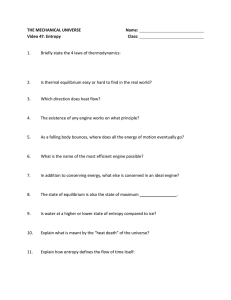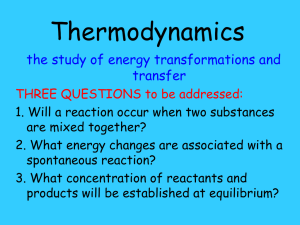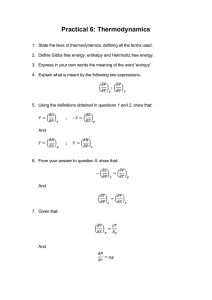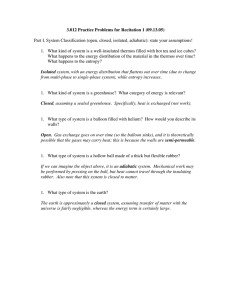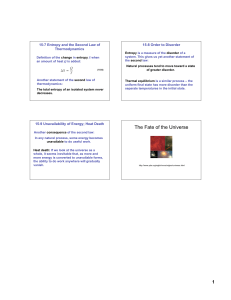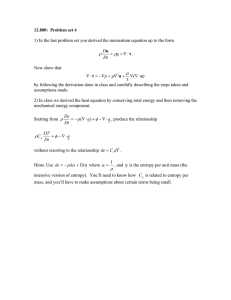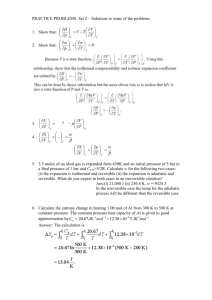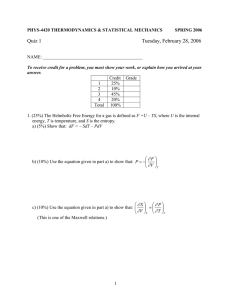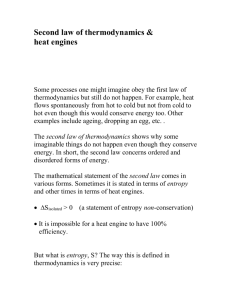Heat engines
advertisement
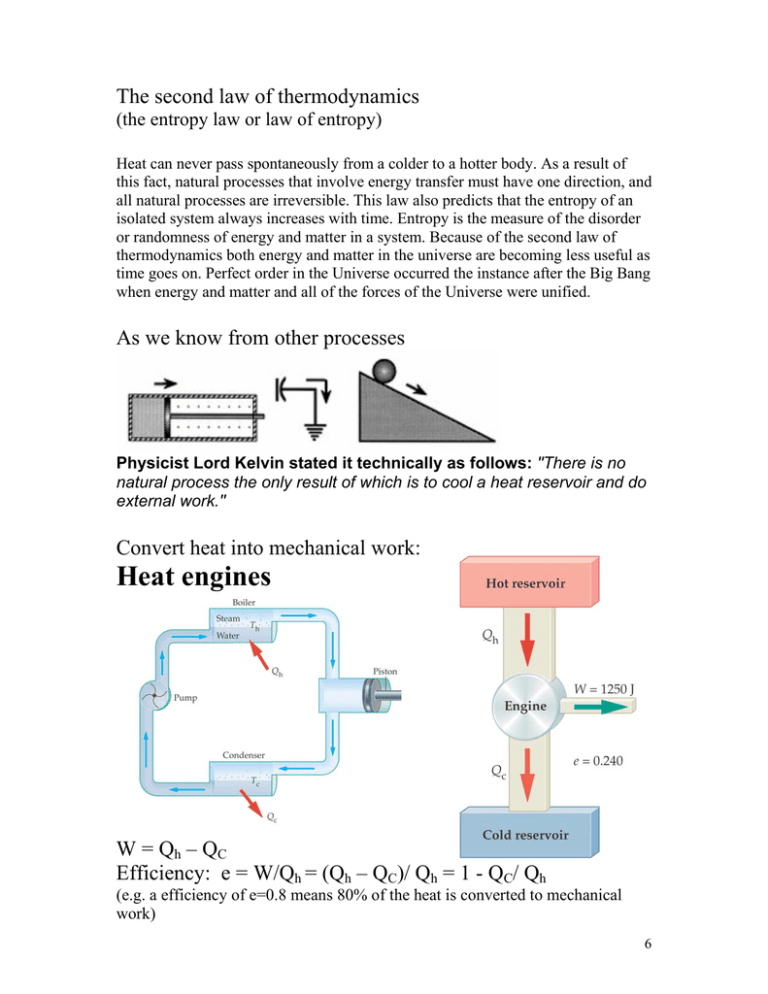
The second law of thermodynamics (the entropy law or law of entropy) Heat can never pass spontaneously from a colder to a hotter body. As a result of this fact, natural processes that involve energy transfer must have one direction, and all natural processes are irreversible. This law also predicts that the entropy of an isolated system always increases with time. Entropy is the measure of the disorder or randomness of energy and matter in a system. Because of the second law of thermodynamics both energy and matter in the universe are becoming less useful as time goes on. Perfect order in the Universe occurred the instance after the Big Bang when energy and matter and all of the forces of the Universe were unified. As we know from other processes Physicist Lord Kelvin stated it technically as follows: "There is no natural process the only result of which is to cool a heat reservoir and do external work." Convert heat into mechanical work: Heat engines W = Qh – QC Efficiency: e = W/Qh = (Qh – QC)/ Qh = 1 - QC/ Qh (e.g. a efficiency of e=0.8 means 80% of the heat is converted to mechanical work) 6 Carnot’s Theorem/Principle To get maximal efficiency is must be a heat engine where all processes are reversible. An irreversible heat engine operating between two heat reservoirs at constant temperatures cannot have efficiency greater than that of a reversible heat engine operating between the same two temperatures. Reversible engines operating between the same temperatures have the same efficiency. Ö there exist no real reversible engine but there is a upper limit Ö Doesn’t matter what kind of substances and states of matter are used Ö It doesn’t matter what kind of machines we use Ö What matters is Tc and Th Lord Kelvin: Qc/ Qh =Tc/ Th or Qc/ Tc = Qh/ Th Maximum efficiency of a heat engine: e == 1 – Tc/ Th Maximum work done by a heat engine: Wmax=emaxQh = (1 – Tc/ Th) Qh 7 COP=Coefficient of Performance QC/W Second law of thermodynamics? 8 Entropy (from the Greek entrope, change) The first law of thermodynamics:Total quantity of energy in the universe remains constant. The second law of thermodynamics: The quality of this energy is degraded irreversibly. This is the principle of the degradation of energy Entropy in words: In fact physical, chemical, and electrical energy can be completely changed into heat. But the reverse (heat into physical energy, for example) cannot be fully accomplished without outside help or without an inevitable loss of energy in the form of irretrievable heat. This does not mean that the energy is destroyed; it means that it becomes unavailable for producing work. The irreversible increase of this nondisposable energy in the universe is measured by the abstract dimension that Clausius in 1865 called entropy. Entropy in math: The entropy is a quantity whose change is given by the heat divided by the absolute temperature ∆S = Q/T always positive for an irreversible process Example: Reversible Heat Engine (which doesn’t exist) Hot Reservoir ∆Sh = -Qh/Th (heat removed) Cold Reservoir ∆Sc = Qc/Tc (heat added) ∆S = ∆Sh + ∆Sc = 0 Irreversible Qh/Th < Qc/Tc Therefore: ∆S > 0 or in words: any irreversible process results in an increase of the entropy Define: Entropy in the universe Total entropy of the universe increase whenever an irreversible process occurs and unchanged when a reversible process occurs. Heat Death: If everything is once at the same temperature no more work can be done. 9 Entropy is also related to order, disorder in the universe The third law of thermodynamics It is impossible to lower the temperature of an object to absolute zero in a finite number of steps. 10
